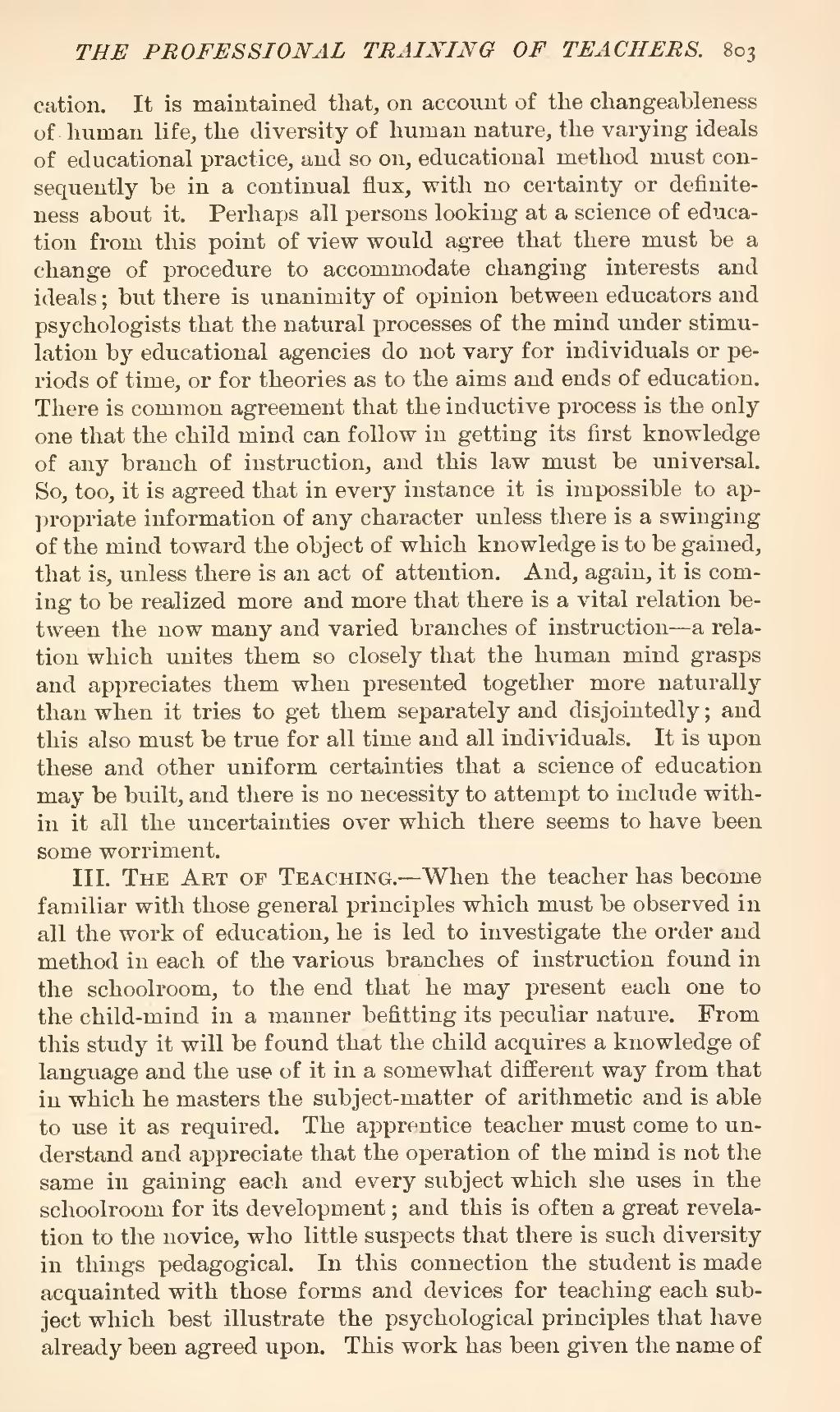cation. It is maintained that, on account of the changeableness of-human life, the diversity of human nature, the varying ideals of educational practice, and so on, educational method must consequently be in a continual flux, with no certainty or definiteness about it. Perhaps all persons looking at a science of education from this point of view would agree that there must be a change of procedure to accommodate changing interests and ideals; but there is unanimity of opinion between educators and psychologists that the natural processes of the mind under stimulation by educational agencies do not vary for individuals or periods of time, or for theories as to the aims and ends of education. There is common agreement that the inductive process is the only one that the child mind can follow in getting its first knowledge of any branch of instruction, and this law must be universal. So, too, it is agreed that in every instance it is impossible to appropriate information of any character unless there is a swinging of the mind toward the object of which knowledge is to be gained, that is, unless there is an act of attention. And, again, it is coming to be realized more and more that there is a vital relation between the now many and varied branches of instruction—a relation which unites them so closely that the human mind grasps and appreciates them when presented together more naturally than when it tries to get them separately and disjointedly; and this also must be true for all time and all individuals. It is upon these and other uniform certainties that a science of education may be built, and there is no necessity to attempt to include within it all the uncertainties over which there seems to have been some worriment.
III. The Art of Teaching.—When the teacher has become familiar with those general principles which must be observed in all the work of education, he is led to investigate the order and method in each of the various branches of instruction found in the schoolroom, to the end that he may present each one to the child-mind in a manner befitting its peculiar nature. From this study it will be found that the child acquires a knowledge of language and the use of it in a somewhat different way from that in which he masters the subject-matter of arithmetic and is able to use it as required. The apprentice teacher must come to understand and appreciate that the operation of the mind is not the same in gaining each and every subject which she uses in the schoolroom for its development; and this is often a great revelation to the novice, who little suspects that there is such diversity in things pedagogical. In this connection the student is made acquainted with those forms and devices for teaching each subject which best illustrate the psychological principles that have already been agreed upon. This work has been given the name of
